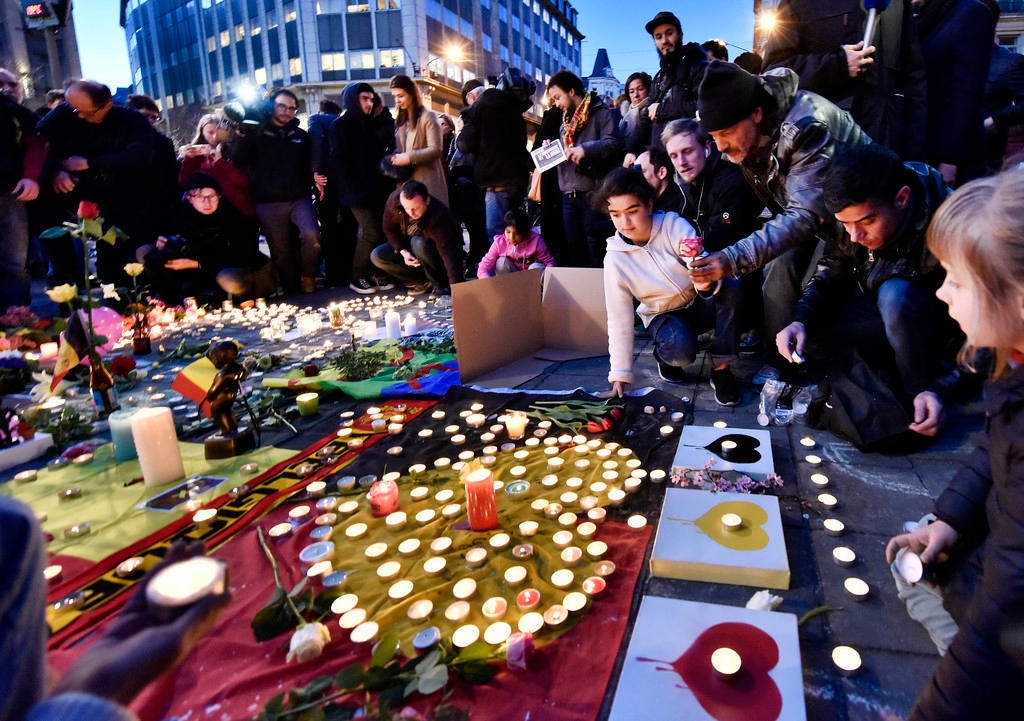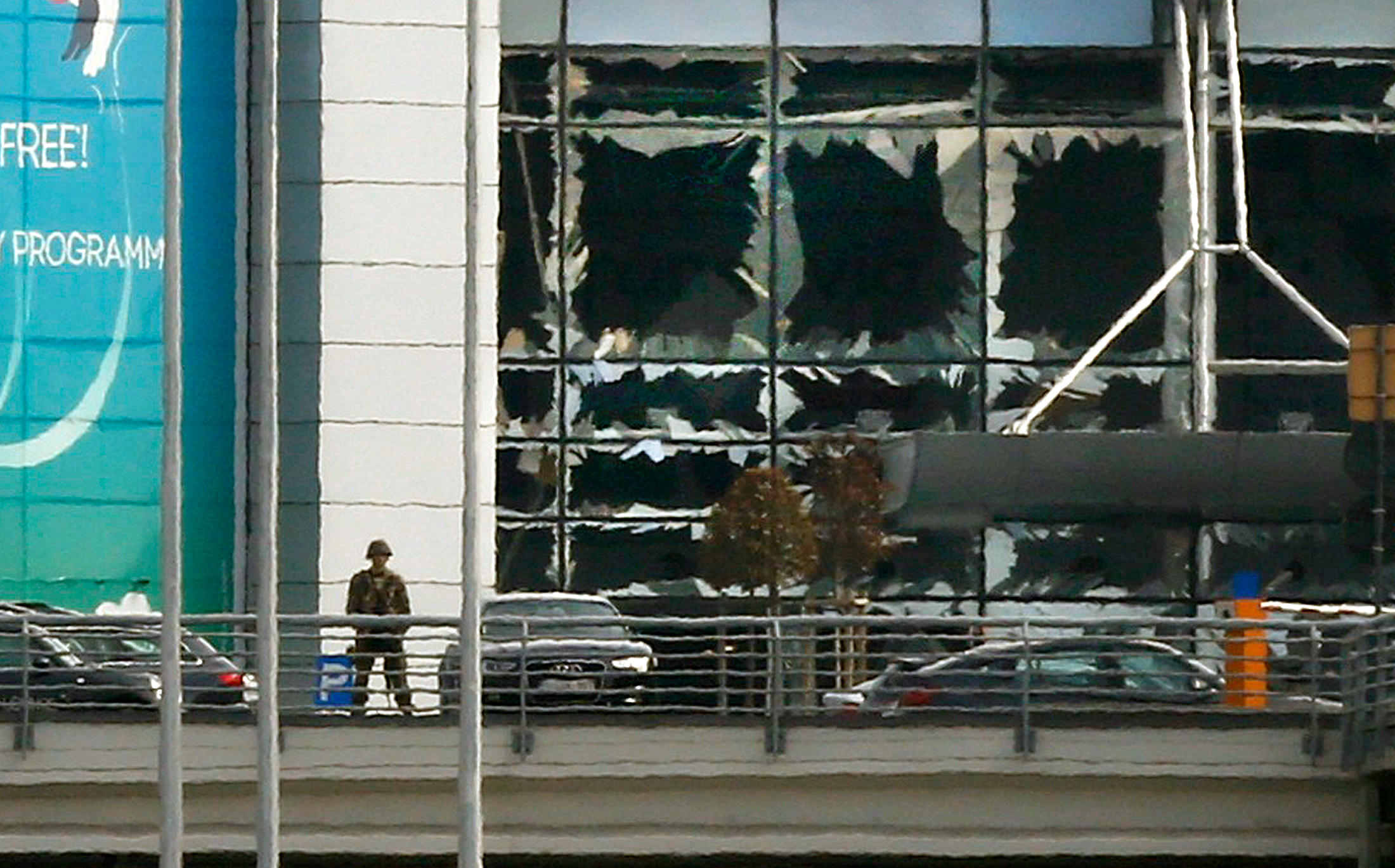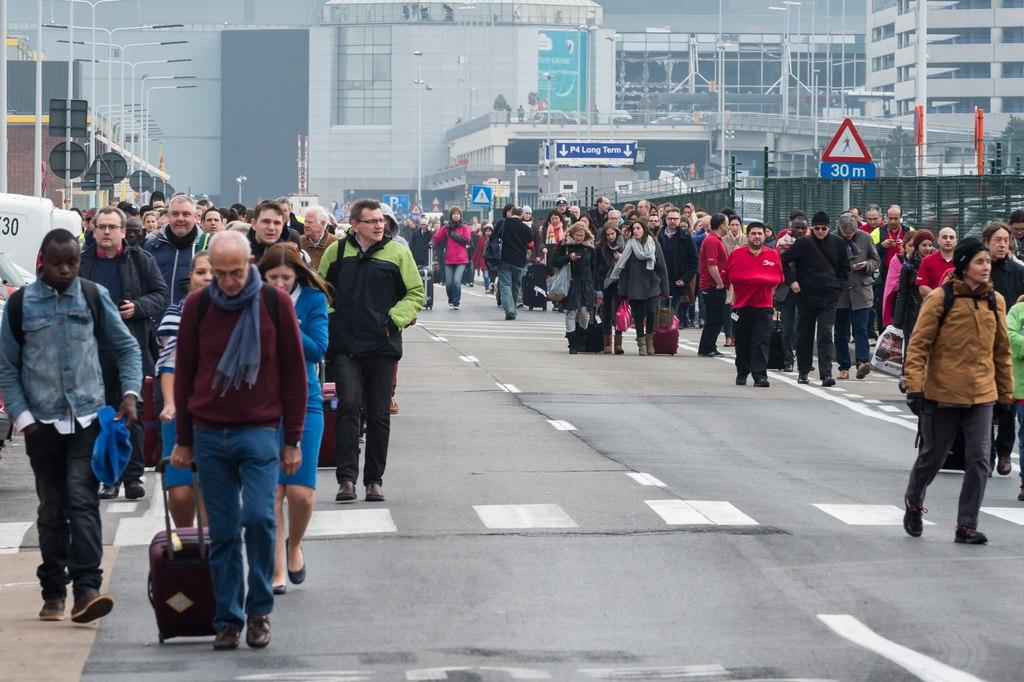Swiss press fatalistic in the wake of Brussels attacks

As Swiss newspapers lament the terrorist attack on the “heart of Europe”, many say the violence in the Belgian capital was not unexpected.
The day after explosions at Brussels airport and within its metro system killed more than 30 people and injured 200 others, the Neue Zürcher Zeitung (NZZ) newspaper questioned the lax security at the airport – where the departure hall was accessible without baggage or identity checks.
Belgium’s terror alert level was raised to its highest level and Brussels was in lockdown. All incoming and departing flights from the airport were cancelled. Swiss International Air Lines cancelled all its air links with the Belgian capital until Easter Monday. The Lufthansa Group, of which Swiss is part, was offering transportation by bus from Frankfurt to Brussels. Daily trains between Basel and Brussels were running on schedule, the Federal Railways said.
However, the NZZ acknowledged on Wednesday that even top security measures could never prevent all attacks. “If airports, train stations and power plants are well protected against terrorists, suicide bombers can join crowds of demonstrators or carnival-goers.”
The newspaper Blick wrote that “Belgium was warned, having sealed off its inner city for days after the November attacks in Paris”. What’s more, the Belgian authorities had issued a terror warning after the recent arrest of a Paris attacker. But like the NZZ, Blick noted the challenges facing authorities. “Even if the Belgian investigators haven’t made a good impression, it’s not possible to completely protect an open and democratic society.”

More
Swiss president extends sympathy to Brussels victims
‘With quiet and determination’
As for the proper response to this latest in a series of attacks, the NZZ appealed for “quiet and determination” in its commentary. In the short term, it called for discussion of tighter security at outer EU borders and more legal authority for police and secret service agencies.
“To solve the problem in the long term, Islamists need to be deprived of a breeding ground in Europe as well as worldwide,” wrote the NZZ. Islamic State has claimed responsibility for the Brussels bomb attacks.
Tribune de Genève commented that Europe had degenerated into “the preferred battlefield of IS fighters” – noting that the pool of human bombs seemed inexhaustible. “The life of a suicide bomber is worth nothing, only the message counts.”
Le Temps took a pessimistic view, pointing out that nobody seemed to be in a position to stop the fanatics behind Islamic State. “What if the terrorists are going to win the war?”
Like many papers, Tages-Anzeiger and Bund called it “an attack to the heart of Europe, close to the centre of power of the EU”. While predicting increased security, they warned against too much fear in a joint commentary.
“A Europe that shields itself and freezes in fear is the target of the assassins,” – adding that the problem for citizens isn’t too much, but rather too little Europe, referring to the recent decision to tighten the EU Weapons Act.
Fighting on multiple fronts
Newspaper Nordwestschweiz called for a certain level of alertness. “After Paris there was a global appeal: We must not allow fear to prevail. Today we need to add: We also mustn’t let our senses be dulled.”
Another regional paper, Südostschweiz, called for the war on terrorism to be “fought on two fronts, finally… with supervision, monitoring and punishment – the entire symptom control is important because it saves lives”. It also cited poor economic prospects and social exclusion in the West among potential terrorists as part of the problem. “These causes need to be combatted with equal commitment.”
The Neue Luzerner Zeitung called for more cooperation between European countries. “That doesn’t just mean tougher laws and more video surveillance in public places. The European countries need to make better use of existing regulations.”
Now it’s time to tackle the root of evil, writes Geneva-based Le Courrier, but it says that European countries would be satisfied with “superficial and symbolic responses”, such as the withdrawal of citizenship.
Taking a pragmatic tact, 24 Heures writes that “Europe must learn to live with the threat of terror”, but the whole continent must learn to fight as well – an “impossibility” in light of the refugee crisis and situation in Syria.
Tages-Anzeiger and Bund predict a swift return to normalcy, as seen in Madrid, London and Paris. “Shock and indignation don’t last long. Unfortunately, that’s a frequent pattern.”
Contact the author on Twitter @SMisickaExternal link or on WordPressExternal link.

In compliance with the JTI standards
More: SWI swissinfo.ch certified by the Journalism Trust Initiative


You can find an overview of ongoing debates with our journalists here. Please join us!
If you want to start a conversation about a topic raised in this article or want to report factual errors, email us at english@swissinfo.ch.